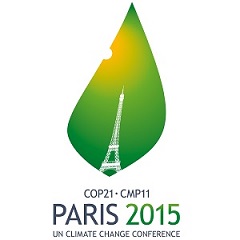
The UNESCO-UNEVOC International Centre: Who We Are | What We Do | Working With Us | Get in Touch
The UNEVOC Network: Learn About the Network | UNEVOC Network Directory
For Members: UNEVOC Centre Dashboard
Thematic Areas: Inclusion and Youth | Digital Transformation | Private Sector Engagement | SDGs and Greening TVET
Our Key Programmes & Projects: BILT: Bridging Innovation and Learning in TVET | Building TVET resilience | TVET Leadership Programme | WYSD: World Youth Skills Day
Past Activities: COVID-19 response | i-hubs project | TVET Global Forums | Virtual Conferences | YEM Knowledge Portal
Our Services & Resources: Publications | TVET Forum | TVET Country Profiles | TVETipedia Glossary | Innovative and Promising Practices | Toolkits for TVET Providers | Entrepreneurial Learning Guide
Events: Major TVET Events | UNEVOC Network News
 From 3 to 10 December 2015, UNESCO-UNEVOC, in collaboration with UNESCO, French Ministries, the Asian Development Bank (ADB), International Labour Organisation (ILO), and with the Inter-agency working group on Greening TVET and Skills (IAWG), organized a number of side events during the United Nations Climate Change Conference (COP21) that took place in Paris, France, from 30 November to 12 December.
From 3 to 10 December 2015, UNESCO-UNEVOC, in collaboration with UNESCO, French Ministries, the Asian Development Bank (ADB), International Labour Organisation (ILO), and with the Inter-agency working group on Greening TVET and Skills (IAWG), organized a number of side events during the United Nations Climate Change Conference (COP21) that took place in Paris, France, from 30 November to 12 December.
COP21 convened 50.000 participants including 25.000 delegates from government, international organizations, UN agencies and civil society, to develop an agreement on climate with the aim of keeping global warming below 2°C. In total, representatives from 195 countries attended the two-week meeting. The adoption of the Sustainable Development Goals (SDGs) have already demonstrated the important role education and in particular technical and vocational education and training (TVET) play in the greening of skills for a sustainable future. Notably, it is paramount to recognize that this involves economic, social and environmental considerations.
On 3 December, David Atchoarena, Director of the Division for Policies and Lifelong Learning Systems at UNESCO, joined ILO Director for Research Raymond Torres, French General Commissioner for Sustainable Development Laurence Monnoyer-Smith and Asian Development Bank Vice President for Knowledge Management and Sustainable Development Bambang Susantono to discuss issues related to climate change and the importance of achieving the targets of COP21. The side event was led by the French Ministry for the Environment, Sustainable Development and Energy and was held at the French pavilion at Le Bourget.
The side event, attended by approximately 50 negotiators and national experts, focused on the importance of mobilizing employment, education, vocational training and economic stakeholders to transform jobs and skills to facilitate the implementation of the international and national objectives for climate change mitigation and adaptation. Particularly, David Atchoarena stressed the importance of vocational skills in achieving the SDGs and highlighted the need for strategic dialogues and the identification of emerging skills needs resulting from green transitions to adopt vocational education provisions. Other speakers emphasized the need for social dialogue, including the practice of tripartism and collective bargaining, as well as governance structures to facilitate the transition to new employment and skills needs.
Two side events were hosted on Integrated Policy Actions for Greener Economy and Society and Workplace. The side events called on Member States and COP21 stakeholders to support policy integration in promoting education and skills, economic and environmental development actions.
Through the sharing of programmatic interventions, the IAWG presented skills development interventions which contributed to the COP21 agenda. Importantly, the IAWG agreed to implement the COP21 recommendations by jointly developing common projects that will promote promising practices in mobilizing local communities to accelerate transition to green economies and tapping indigenous knowledge.
Another IAWG session at Le Bourget allowed for the sharing of international, regional and national projects and outcomes related to boosting green skills and meeting green jobs. Numerous stakeholders presented their projects including the Organisation for Economic Co-operation and Development (OECD), ADB, ILO, the United Nations Institute for Training and Research (UNITAR) and UNEVOC Centres from Malta (Malta College of Arts, Science and Technology), and Germany (Federal Institute for Vocational Education and Training - Bundesinstitut für Berufsbildung BIBB).
UNESCO-UNEVOC also collaborated with the UNESCO Youth, Literacy and Skills Section as well as the French Agency for the Environment and Energy Management (ADEME), the Alliance Villes Emploi (AVE), Ministry for Environment, Sustainable Development and Energy (MEDDE) and the French Development Agency (AFD) in organizing other side events: